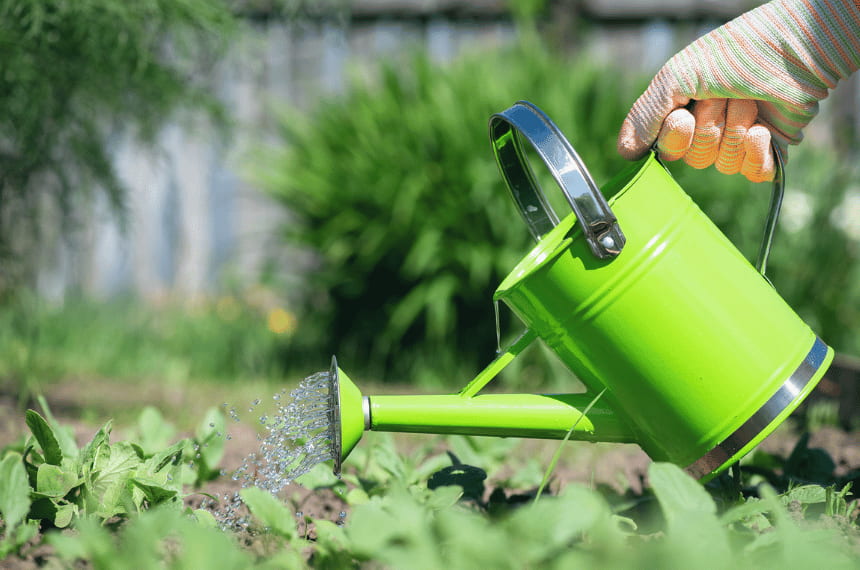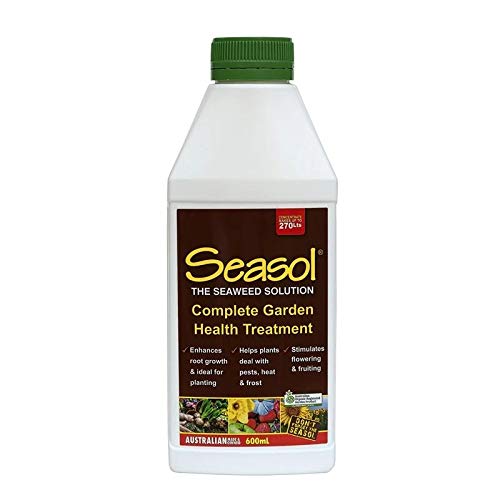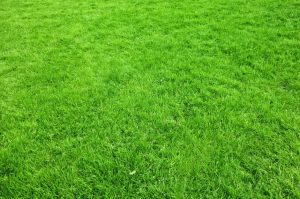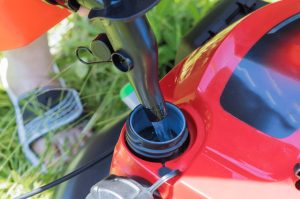Plant nutrition and health are essential components of every flourishing garden. Products such as Charlie Carp and Seasol can help plants obtain the vital nutrients they require.
This post is intended for Australian home gardeners and plant enthusiasts who want to compare the benefits and usage of these two popular plant fertilisers!

Charlie Carp is an innovative solution to two pressing issues: the need for high-quality, nutrient-rich fertilisers for gardens and the environmental challenge the European carp pose in Australian waterways.
As an invasive species, European carp have significantly disrupted local ecosystems, outcompeting native fish species and damaging aquatic environments. By transforming this environmental threat into a valuable gardening resource, Charlie Carp offers a sustainable plant nutrition and health approach.
This fish-based product is a testament to resourcefulness and an example of how gardening practices can contribute to ecological balance. Rich in essential nutrients such as nitrogen, phosphorus, potassium, trace minerals, vitamins, and amino acids, Charlie Carp supports various plant needs, from root development to flowering and fruit production.
Key benefits of using Charlie Carp
- Environmental restoration: Utilising Charlie Carp helps mitigate the impact of the European carp on Australian waterways, turning a negative ecological presence into a positive resource for gardeners.
- Improved plant growth and health: The comprehensive nutrient profile of Charlie Carp ensures that plants receive a balanced diet, leading to vigorous growth and robust health.
- Enhanced fruit and flower production: Charlie Carp boosts productivity by providing plants with the essential nutrients they need, resulting in more abundant and vibrant blooms and yields.
- Increased resistance to pests and diseases: Healthy plants are better equipped to fend off diseases and pest invasions, and the use of Charlie Carp contributes to building this resilience.
- Strengthened root systems: The foundation of any healthy plant is its root system. Charlie Carp's nutrient mix promotes the development of strong roots, essential for water and nutrient uptake.
Charlie Carp is versatile and effective across various garden settings, including lawns, turf, veggie patches, flower beds, fruit trees, and bushes. Its application is straightforward—simply adhere to the recommended dilution rate and frequency indicated on the product packaging.
Whether applied as a foliar spray or directly to the soil, Charlie Carp is an excellent choice for gardeners looking to enhance their plant's growth while contributing to environmental conservation efforts.
By choosing Charlie Carp, gardeners nourish their gardens and participate in a larger movement towards sustainable and environmentally responsible gardening practices. This dual benefit underscores the importance of selecting gardening products that align with the immediate needs of the garden and the planet's long-term health.
Charlie Carp NPK ratio breakdown
The NPK ratio of Charlie Carp, at 10:1:6, indicates a high nitrogen content essential for vigorous leaf growth and overall plant vitality.
Phosphorus supports strong root development, while potassium enhances plant resilience against stress and disease, promoting healthy flowering and fruiting. This balanced nutrient mix caters to comprehensive plant health, from root to bloom.
Seasol is a premier soil conditioner derived from the brown kelp species Durvillaea potatorum and Ascophyllum nodosum. This liquid seaweed extract is more than just a temporary solution for plant health; it's a long-term investment in the vitality of your garden's ecosystem.
Packed with critical trace elements like iron, zinc, manganese, copper, boron, and molybdenum, Seasol goes beyond mere nutrition to enhance plant functions at a fundamental level.
Key benefits of using Seasol
- Beyond Immediate Benefits: The Long-Term Impact of Seasol on Soil Health
- Enhanced Soil Structure: Seasol's natural compounds improve soil consistency, facilitating better water retention and aeration. This creates an ideal environment for root growth and microbial activity, which is crucial for nutrient cycling and soil fertility.
- Stimulation of Beneficial Microorganisms: The biostimulants in Seasol promote the proliferation of beneficial soil microorganisms. These microorganisms play a key role in organic matter decomposition, releasing nutrients in accessible forms for plant uptake.
- Root Development and Nutrient Uptake: By improving root health, Seasol ensures plants have a robust system to absorb water and nutrients more efficiently, leading to stronger, more resilient growth.
- Resistance to Environmental Stress: The trace elements and natural plant growth hormones in Seasol equip plants to better withstand environmental stresses such as drought, frost, and salinity.
Seasol's comprehensive approach to plant care makes it an indispensable tool for gardeners aiming for immediate and long-lasting garden health. Ideal for a wide range of applications, from indoor plants to outdoor gardens and seedlings to transplants, Seasol can be applied as a foliar spray or directly to the soil, similar to Charlie Carp.
However, its unique composition and benefits position it as a critical component for anyone looking to support their plants and nurture and enhance the soil ecosystem on which their garden thrives.
Seasol NPK ratio breakdown
The NPK ratio of Seasol, marked at 12:1.4:7, is tailored for comprehensive plant health and vigorous growth.
The high nitrogen (N) content accelerates foliage and stem development, making it ideal for leafy greens and lawns. Phosphorus (P) at 1.4 supports root growth and flower formation, which benefits root vegetables and flowering plants. Potassium (K), at 7, enhances overall plant resilience, aiding in water retention, disease resistance, and fruit quality.
This balanced formulation makes Seasol suitable for many plants, ensuring they receive a well-rounded diet for optimal health and productivity.
Key differences between Charlie Carp and Seasol
The primary distinctions between Charlie Carp and Seasol are based on their composition and intended use. While Charlie Carp is a nutrient-rich, fish-based fertiliser that produces rapid effects, Seasol is a seaweed-based plant tonic that concentrates on long-term plant health and growth.
We’ll go through some of the significant differences between these two items in greater detail below so you can figure out what works best for you!
| Feature | Charlie Carp | Seasol |
| Composition | Fish-based, rich in nitrogen, phosphorus, potassium | Seaweed-based, rich in trace elements and biostimulants |
| Primary Function | Nutrient-rich fertiliser for rapid plant growth | Plant tonic focusing on long-term health and soil conditioning |
| Plant Response | Triggers rapid growth, enhancing greenery and productivity | Promotes gradual health improvements, root development, and stress tolerance |
| Environmental Impact | Repurposes invasive species, contributing to ecosystem restoration | Sustainably harvested, minimises ecological footprint, promotes ecological balance |
Nutrient composition
With its fish-based composition, Charlie Carp offers a nutrient-rich profile, particularly nitrogen-rich, essential for leaf growth and overall plant vigour. This makes it especially beneficial for plants in their vegetative growth phase, requiring a boost in greenery and structure.
On the other hand, Seasol, derived from seaweed, provides a unique blend of trace elements and biostimulants that support a wide range of plant functions, from root development to stress resistance.
While both products offer balanced NPK ratios, Charlie Carp’s formulation is geared towards immediate nutrient provision. In contrast, Seasol focuses on long-term plant health and soil conditioning, making them complementary choices for gardeners aiming for both immediate impact and sustainable growth.
Primary functions
Charlie Carp is a potent, nutrient-rich fertiliser ideal for gardeners looking to quickly boost plant growth, health, and productivity. Its high nitrogen content makes it perfect for enhancing the greenery of lawns, leafy vegetables, and the overall vigour of flowering and fruiting plants.
Seasol, functioning primarily as a plant tonic, enhances plant resilience, develops roots, and improves soil health. It’s best suited for gardeners aiming for long-term vitality, fortifying plants against environmental stresses, and improving nutrient uptake efficiency.
Although Charlie Carp addresses immediate nutritional needs, Seasol is the go-to for sustained plant health and soil enhancement. It makes them complementary tools in a gardener’s arsenal.
Plant response
Charlie Carp’s high nutrient concentration, particularly in nitrogen, phosphorus, and potassium, triggers a rapid response in plants, leading to swift growth, enhanced greenery, and increased productivity. This makes it an excellent choice for gardeners looking to see quick improvements in plant health and yield.
In contrast, Seasol, with its rich composition of trace elements and biostimulants, promotes a more gradual enhancement of plant health. Its benefits, including improved root development and increased stress tolerance, accumulate over time, contributing to developing robust, resilient plants capable of withstanding adverse conditions.
In short, Charlie Carp offers immediate gratification through visible growth spurts; Seasol lays the foundation for long-term plant vitality and resilience, each playing a unique role in a balanced gardening strategy.
Environmental impact
Seasol’s production, derived from sustainably harvested seaweed, ensures minimal environmental disruption, promoting ecological balance. Its use as a soil conditioner and plant tonic enhances garden ecosystems without the heavy ecological footprint associated with some synthetic fertilisers.
Conversely, Charlie Carp addresses an environmental challenge by repurposing the invasive European carp into a valuable garden resource, thus turning a negative ecological impact into a positive outcome. While its production involves processing fish, it contributes to the restoration of Australian waterways by reducing the population of invasive species.
Both products embody principles of environmental stewardship, albeit through different approaches: Seasol through sustainable sourcing and Charlie Carp through invasive species management, each contributing uniquely to ecological health and sustainability.
Charlie Carp vs Seasol: What to choose?
Ultimately, the choice between Charlie Carp and Seasol comes down to your gardening goals and needs. Consider the following factors while deciding whether Charlie Carp or Seasol is the better option for you:
- Nutrient requirements: Determine your plants’ individual nutrient requirements. Charlie Carp may be ideal for a nutrient boost due to its increased nutrient content. If your plants require total health enhancement and growth stimulation, Seasol may be a better choice.
- Soil condition: Examine the current health and fertility of your soil. Charlie Carp is better for boosting soil fertility, whilst Seasol improves soil structure and promotes beneficial microbial activity.
- Application preferences: Consider your preferred application technique. Both treatments can be applied as a foliar spray or soil drench. Still, depending on your gardening layout and plant kinds, one technique may be more convenient.
- Environmental considerations: If you want to reduce your environmental effect, Seasol, a seaweed-based solution, may be a better option. However, utilising Charlie Carp can aid in managing the invasive carp population in Australia, which is also an important environmental factor.
- Plant stress tolerance: Consider your plants’ stress tolerance and resilience. Seasol can help plants adapt to stress, making them more resistant to pests, diseases, and extreme weather.
- Budget and availability: In your area, compare the price and availability of both products. You may discover that one product is more affordable and accessible than the other, which may affect your decision.
Remember that picking one over the other is not always the case. Charlie Carp and Seasol can provide a well-rounded approach to plant nutrition, development, and overall health.
Combining Charlie Carp and Seasol
Combining Charlie Carp and Seasol can produce fantastic results for gardeners like us because their benefits complement each other and cater to distinct parts of plant growth and health.
In our experience, combining Charlie Carp with Seasol works well, whether beginning a new garden or revitalising an old one. This is because Charlie Carp and Seasol revitalise the soil and plants while fostering strong root systems and enhancing soil fertility.
Benefits of using both products
Some benefits of using both Charlie Carp and Seasol include:
- Comprehensive nutrient support: Charlie Carp offers important nutrients, while Seasol improves nutrient uptake, ensuring your plants are properly nourished.
- Stronger plants: Seasol promotes plant health and stress tolerance, whereas Charlie Carp promotes growth and vitality, resulting in hardy plants that can survive in various environments.
- Protection against pests and diseases: By combining the two treatments, you provide your plants with an all-around defence system, as healthier plants are less prone to pests and illnesses.
Application guidelines
In terms of application, we recommend following the manufacturer’s recommended dilution rates and application frequency for each product when using both items together.
Be wary of any nutrient imbalances or over-fertilisation, and keep a close eye on your plants for symptoms of stress. Remember that moderation is essential for getting the greatest outcomes while not damaging your plants or the environment.
Charlie Carp and Seasol significantly benefit Australian home gardeners and plant lovers. You may decide which or a combination of products is best for your garden by studying their distinctions and considering your needs. Good luck with your planting!
If you’re still looking for more fertiliser information, head to our comprehensive guide on GOGO juice vs Seasol or PowerFeed vs Seasol!
DIY alternatives and homemade recipes
For gardeners interested in sustainable practices or those looking for cost-effective alternatives to commercial products like Charlie Carp and Seasol, homemade fertilisers and soil conditioners can be an excellent option.
These DIY solutions provide essential nutrients, improve soil health, and recycle kitchen waste, reducing environmental impact.
Here are a few recipes to get you started:
| DIY Fertiliser/Conditioner | Ingredients | Instructions |
| Homemade Fish Emulsion Fertiliser |
|
|
| Seaweed Tea |
|
|
| Eggshell and Coffee Grounds Mix | Eggshells
Used coffee grounds |
|
| Banana Peel Fertiliser |
|
|
| Wood Ash Fertiliser |
|
|
These homemade alternatives offer gardeners a way to nourish their plants naturally and an opportunity to engage more deeply with the cycle of growth and sustainability in their gardens.
Remember to test your soil periodically and adjust your homemade fertiliser and conditioner applications based on your garden’s needs.
Conclusion
This article explored the benefits and applications of Charlie Carp and Seasol, offering insights into their nutrient compositions, primary functions, plant responses, and environmental impacts.
Additionally, we provided DIY alternatives for eco-conscious gardeners.
Whether choosing between these commercial options or opting for homemade solutions, gardeners are equipped to enhance plant health and soil vitality and contribute to environmental sustainability in their gardening practices.
FAQs
What is the meaning of NPK?
NPK stands for Nitrogen, Phosphorus, and Potassium, which are essential macronutrients for plant growth, health, and reproduction.
Is Charlie Carp high in nitrogen?
Yes, Charlie Carp is high in nitrogen, featuring a nutrient composition that supports rapid leaf growth and overall plant vigour, making it particularly beneficial for the vegetative growth phase of plants.
Is Seasol high in nitrogen?
While offering a range of nutrients and biostimulants for plant health, Seasol does not primarily focus on high nitrogen content. Instead, it improves plant resilience, root development, and soil condition over time.
Is Charlie Carp good for tomatoes?
Charlie Carp is great for tomatoes, as it provides essential nutrients that promote healthy growth, strong root systems, and improved fruit production.
Is Seasol good for tomatoes?
Yes, Seasol benefits tomatoes, providing them with essential trace elements and biostimulants that support root development, improve nutrient uptake, and enhance resistance to environmental stress. Its application can lead to healthier tomato plants and potentially more bountiful yields.








